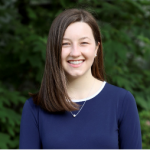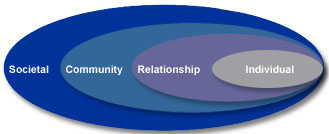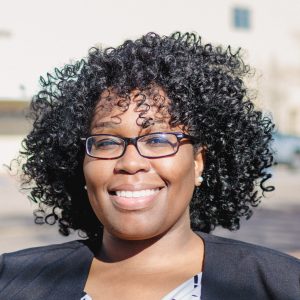
While examining public health through the socio-ecological model, I realized the critical part of the definition is that it requires understanding. I continued my conversation with Dr. Mary Wesley to examine how research can offer insight to public health and advance the field to eventually reach better health outcomes for all. As I have learned, research is about asking the right — sometimes uncomfortable — questions, and I hope our conversation sparks some questions of your own.

Claire: In research, what is the interplay between government, academia, and communities, and how do those all fit together to achieve better health outcomes?
Dr. Wesley: There’s been a lot of collaboration as far as dealing with the pandemic and having to face the challenge together, and the government leveraging resources to communities and academia. Academia is able to use their expertise to make advances in knowledge, but also respect the lived experiences and expertise of communities and know that communities can help provide context for research, as well as for implementation of the findings and outcomes. I think the government has an important role to play in leveraging resources and letting academia inform policies.
Claire: What is the specific role of epidemiologists and researchers like yourself in meeting these challenges, and how does that lead to policy change and better health outcomes?
Dr. Wesley: Asking the right questions. Involving the right people — because you need to be working with the community. Being okay with uncomfortable answers. Having collaborations with diverse partners to create lasting change.
This is sort of what drove me into deciding that I wanted to do research. I think it’s really important that you’re involving people and asking the right questions, which isn’t just: “What’s going on,” but “Why is it going on?” That’s a really important question to ask: why; and what’s contributing to structural, societal, systemic problems; and how is that impacting the individual; and why is it impacting different individuals differently. It’s really important.
Involving the right people means, you are not asking that in isolation of the people who will be your study population or the end result of your recommendations. You’re involving their voice.
Just asking uncomfortable questions: it might be “why isn’t what we’re doing working?” You could have really good intentions to be implementing this program in this community, but you’re not doing it right because maybe you didn’t ask the people before you did it. Maybe something was working, but it’s not working anymore. It involves change, and it might involve a lot more work than people realize.
We must be able to ask those uncomfortable questions and be committed to collaborating with those communities and with diverse partners to come to an impactful and equitable solution.
Claire: As an academic researcher, but also as a resident who’s called these places home for a while, what do you think are some misconceptions about the Delta and the South?
Dr. Wesley: There are a lot of committed people who are doing a lot of great work, and I don’t think that’s clear if all you’re doing is looking at a ranking of states or health outcomes. The communities and populations are invested in health and well-being. The communities are doing a lot of good work.
Claire: What do you like the most about living in Mississippi?
Dr. Wesley: The people. The people are our greatest treasure and potential for change.

Dr. Mary M. Wesley is a proud native of Hattiesburg, Mississippi, and currently is a postdoctoral fellow in the Department of Epidemiology at the Harvard T. H. Chan School of Public Health.
In this position, she serves as the Delta Scholars in Public Health Teaching Fellow. Dr. Wesley works with students, faculty, and organizations in the Mississippi Delta region and in the Harvard community to advance public health research, education, and practice in Mississippi.
More from Claire Bunn here.
BCPHR.org was designed by ComputerAlly.com.
Visit BCPHR‘s publisher, the Boston Congress of Public Health (BCPH).
Email [email protected] for more information.
Click below to make a tax-deductible donation supporting the educational initiatives of the Boston Congress of Public Health, publisher of BCPHR.![]()
© 2025-2026 Boston Congress of Public Health (BCPHR): An Academic, Peer-Reviewed Journal
All Boston Congress of Public Health (BCPH) branding and content, including logos, program and award names, and materials, are the property of BCPH and trademarked as such. BCPHR articles are published under Open Access license CC BY. All BCPHR branding falls under BCPH.
Use of BCPH content requires explicit, written permission.